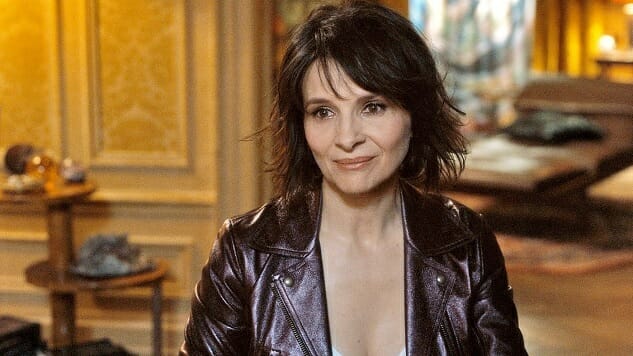Let the Sunshine In

Making love is better when you’re in love. For Isabelle (Juliette Binoche), a painter living in Paris, the former comes easily and the latter vexes her. She has no trouble meeting men, falling for them, sleeping with them. They practically stumble into her orbit, then into her embrace, and she into theirs. There’s Vincent (Xavier Beauvois), the banker, forceful, piggish, but at least honest about his wish to keep their fling a fling; there’s the unnamed actor (Nicolas Duvauchelle), thoughtful, handsome, sensitive to a fault, and burdened by too many hang-ups; there’s her ex-husband, François (Laurent Grévill), still in her life and in her bed, loving but unnatural and too quick to their 10-year-old daughter as a bargaining chip in their undefined relationship.
That’s a sample platter of Isabelle’s romantic partners, but it is exactly romance she’s looking for and woefully lacking. When your sex life is rich but your love life poor, life itself tends gradually to lose overarching meaning, and the search for meaning is the engine driving Claire Denis’ new film, Let the Sunshine In, an ostensible romantic comedy that’s light on both but rich with soulful ennui. Not to say that Denis and Binoche don’t make us laugh, mind you, but what they’re really after is considerably more complicated than the simple pleasures the genre has to offer. Let the Sunshine In is a sexy film, a free, loose, yet rigorously made film, and yes, it’s occasionally a funny film, but primarily it’s a painful film, that pain deriving from primal amorous cravings that unfailingly slip through Isabelle’s fingers like so much sand.
-

-

-

-

-

-

-

-

-

-

-

-

-

-

-

-

-

-

-

-

-

-

-

-

-

-

-

-

-

-

-

-

-

-

-

-

-

-

-

-








































